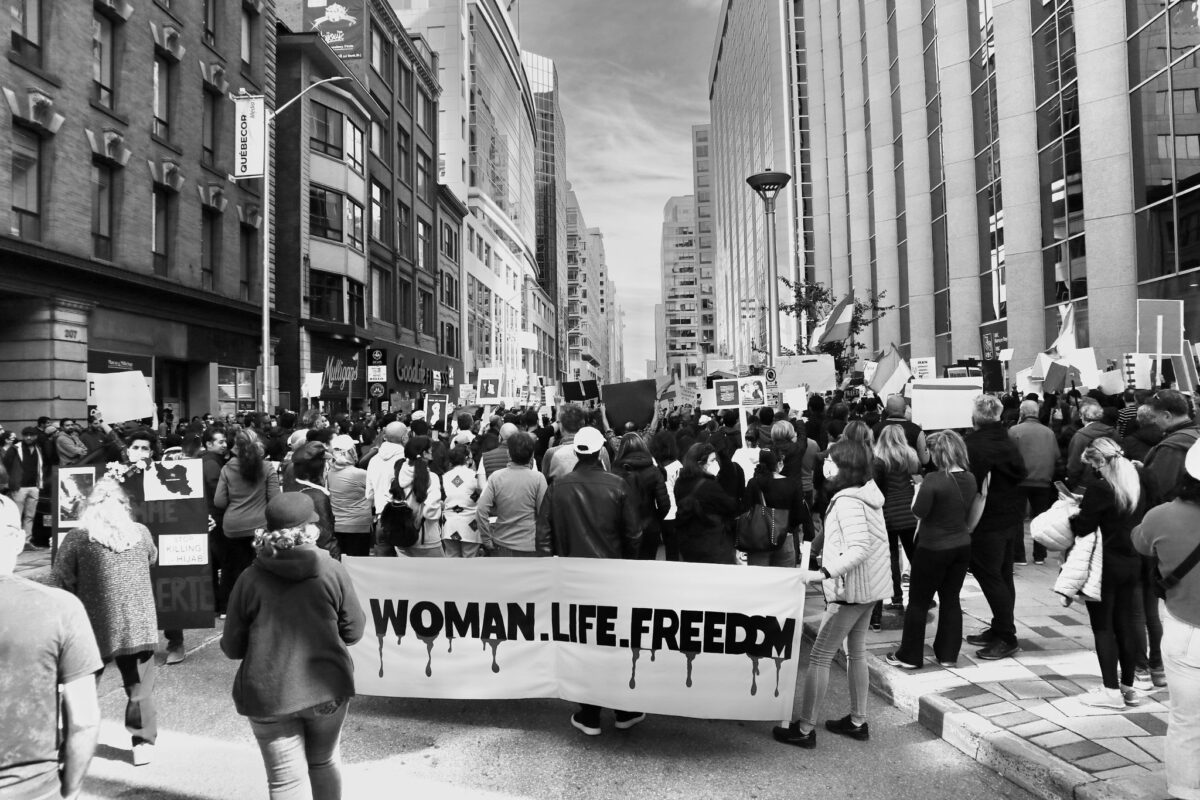Rights groups this week condemned Iran’s deadly crackdown on anti-government protests, with Human Rights Watch on Wednesday publishing a report claiming hundreds of people—including numerous children—have been killed or wounded in recent weeks.
Human Rights Watch (HRW) reviewed video footage and interviewed people who either took part in or witnessed the government’s repression of nationwide protests sparked by the September 16 death of Mahsa Amini, a 22-year-old woman arrested by Iran’s morality police three days earlier and reportedly beaten for violating the fundamentalist theocracy’s strict dress code.
“The Iranian authorities’ brutal response to protests across many cities indicates concerted action by the government to crush dissent with cruel disregard for life,” HRW senior Iran researcher Tara Sepehri Far said in a statement Wednesday. “The security forces’ widespread shooting of protesters only serves to fuel anger against a corrupt and autocratic government.”
HRW’s probe documented “numerous incidents of security forces unlawfully using excessive or lethal force against protesters in 13 cities across Iran,” with video showing “security forces using shotguns, assault rifles, and handguns against protesters in largely peaceful and often crowded settings, altogether killing and injuring hundreds. In some cases, they shot at people who were running away.”
Islamic Republic of Iran killed her in the protest over the murder of #MahsaAmini.#NikaShakarami 17, vanished during the protest.
After a week, security forces delivered her dead body with her nose fully smashed & her skull broken from multiple blows.#مهسا_امینی
#نیکا_شاکرمی pic.twitter.com/wMaRjeVSiR— Masih Alinejad 🏳️ (@AlinejadMasih) October 4, 2022
The rights group compiled a list of 47 people who have been killed during the protests, with victims ranging from 15 to 70 years in age. Most were shot, but two teenage girls—16-year-old Sarina Esmaeilzadeh and Nika Shakarami, 17—were reportedly beaten to death.
Notably, HRW’s research “did not include the deadly crackdown by security forces in Zahedan on September 30, nor subsequent attacks against protesters, including on Sharif University Campus in Tehran on October 2.”
The HRW report came a day after Human Rights Watch and around a dozen other advocacy groups published a joint statement demanding “an end to the deliberate violence, arrest, threats, and charges against Iranian human rights defenders, journalists, student activists, and civil rights actors, especially amongst minority ethnic groups.”
Stand with the women of Iran ✊ pic.twitter.com/ZROCQsVOk9
— Amnesty International USA (@amnestyusa) October 4, 2022
The statement noted that “Iranian authorities are particularly targeting civil society members, women human rights defenders, and those working on the rights of women and girls on the frontlines, including activists working on ethnic minority rights.”
“At least 17 women’s rights and civil rights defenders have been arbitrarily arrested in the Kurdistan province,” the groups added. “Jina Modares Gorji, a woman human rights defender, has started a hunger strike in protest against the physical assault and detention in Sanandaj Correctional Center” since September 21.
Demonstrations continued for the 19th straight day in Iran on Wednesday as government forces were dispatched to universities in several cities to quell protests. Video shared on social media showed high school girls in the capital Tehran removing their headscarves and chanting “death to Khamenei,” a reference to Iranian Supreme Leader Ayatollah Ali Khamenei.
A girls' school in Iran brought a member of the IRGC-run Basij paramilitary to speak to students. The girls welcomed the speaker by taking off their headscarves & chanting "get lost, Basiji".
Teenage girls have been at the forefront of protests for days.https://t.co/kvskgB8qas
— Kian Sharifi (@KianSharifi) October 5, 2022
Teenagers have been at the forefront of resistance in recent days.
Ali Fadavi, the number two commander in the Islamic Revolutionary Guard Corps, told Al Jazeera on Wednesday that the “average age of the many of the recently arrested is 15 years” and that many protesters had fallen “victim” to propaganda on social media and in foreign media.
Progressives around the world have voiced support for Iranian women. In the United States, human rights defenders and congressional progressives including Sen. Bernie Sanders (I-Vt.) have expressed solidarity with the demonstrators.
It takes enormous bravery to go to the streets to protest Iran’s authoritarian “Supreme Leader.” But, led by courageous young women, that’s exactly what’s happening. I stand with all of those Iranians who are demanding freedom and a better future.
— Bernie Sanders (@SenSanders) October 5, 2022
Meanwhile, Iranians living abroad and people of Iranian descent have taken to the streets in countries around the world to protest the violent crackdown in Iran.
“The Iranian diaspora is more united than ever and stands behind the Iranian women and men protesting the brutal Islamist regime,” Vahid Razavi, an Iranian-born U.S. technology activist, told Common Dreams. “This brutality cannot last. At the end of the day, no dictatorship lasts.”
